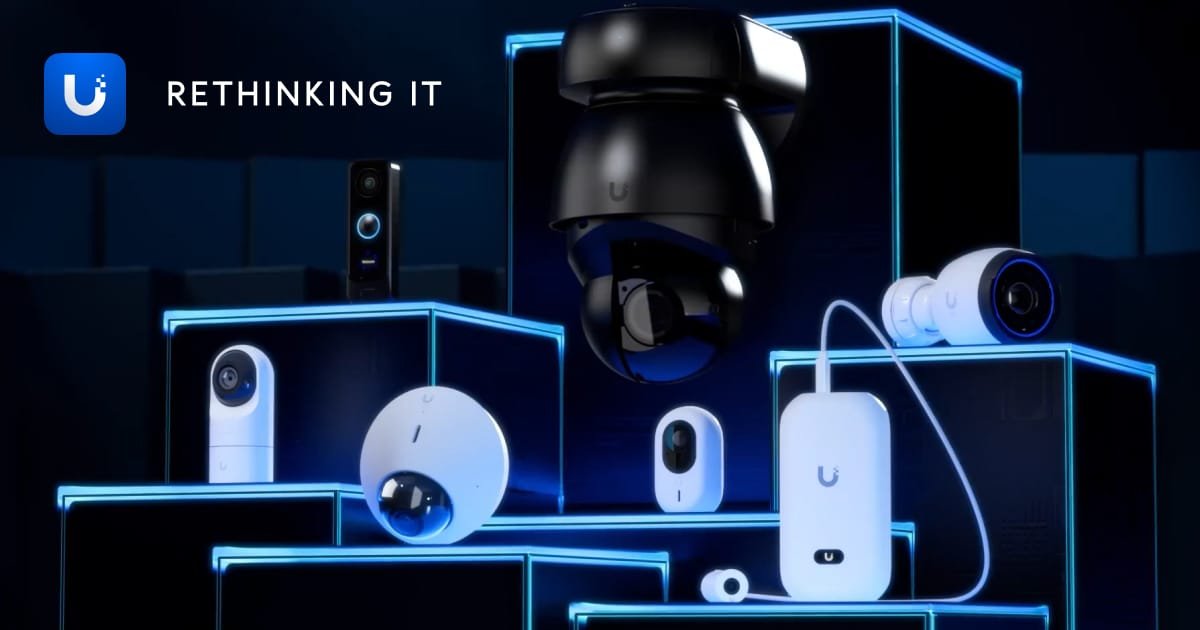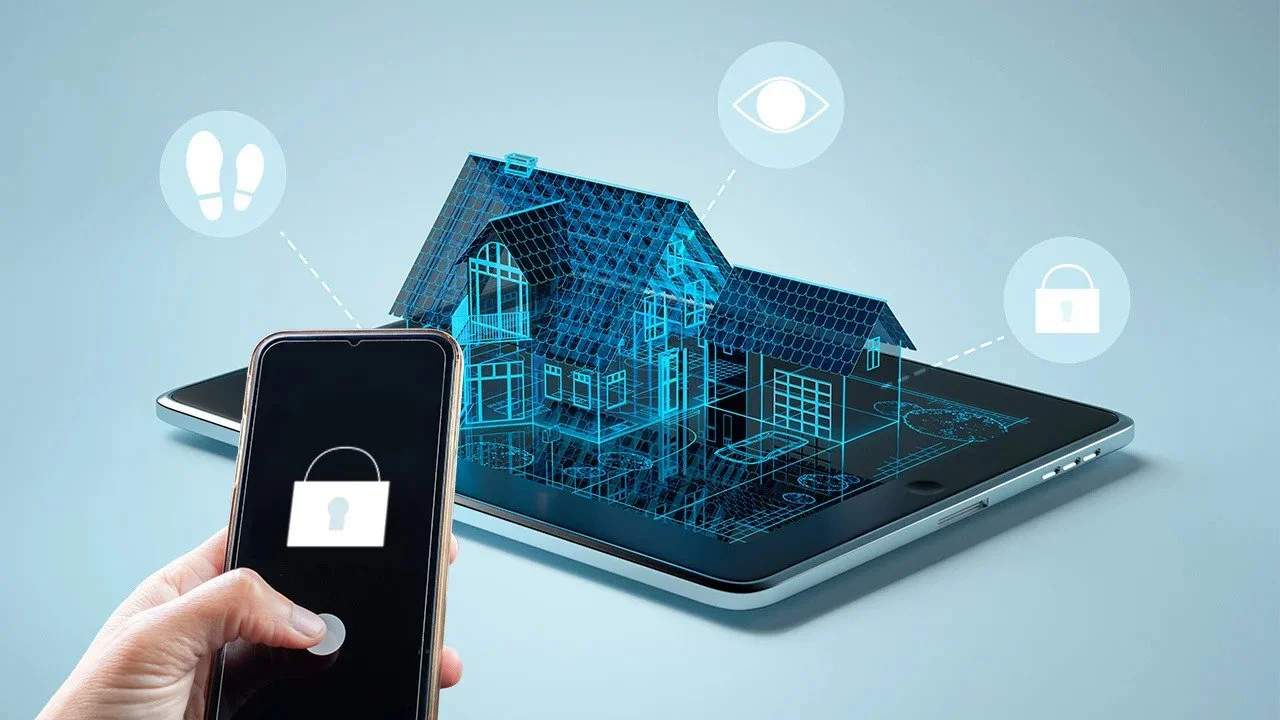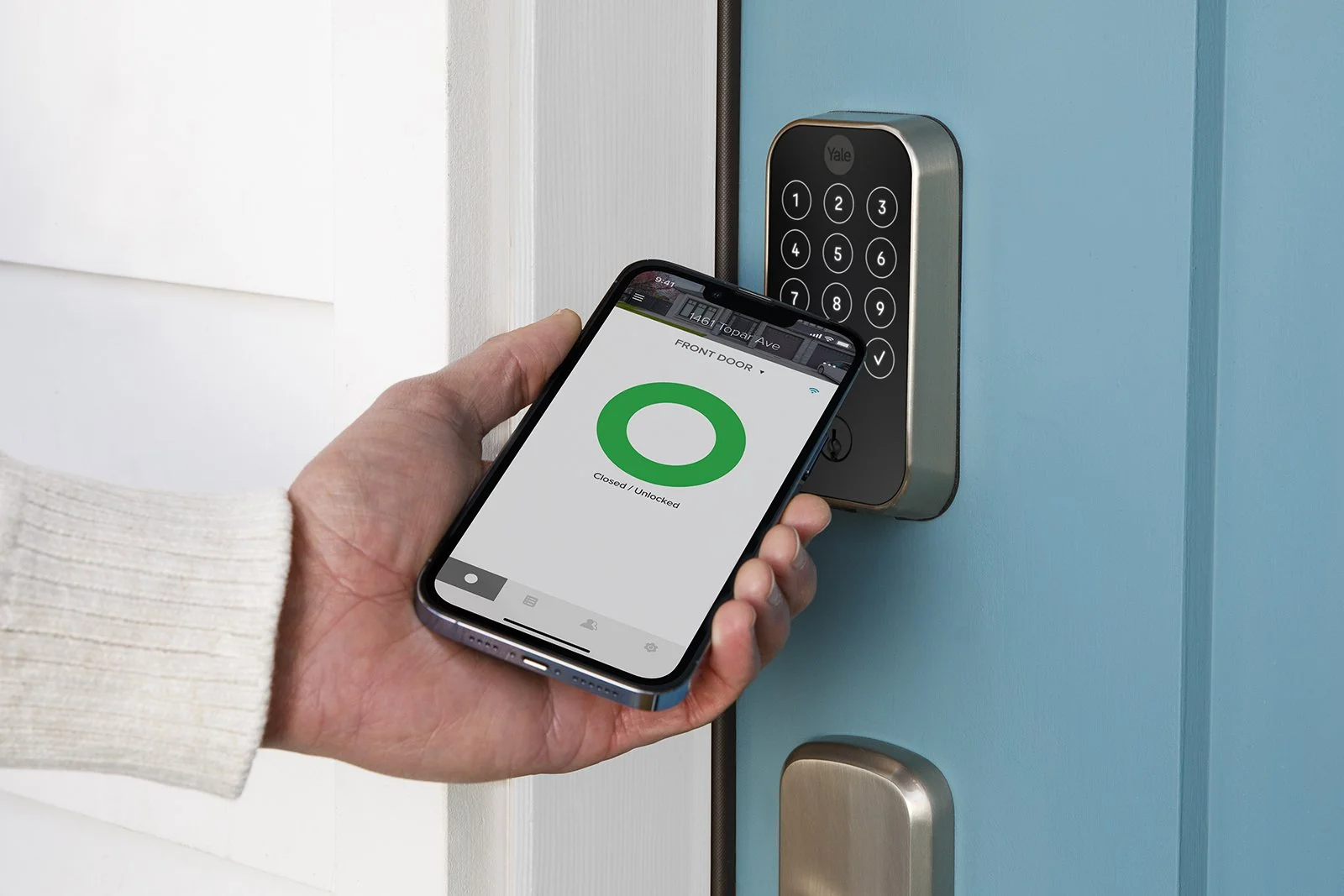
Premium home protection made simple
-

Security
Intrusion Detection: Home security systems include sensors on doors, windows, and other entry points that can detect unauthorized entry attempts. When activated, these sensors can trigger alarms, alerting homeowners and authorities to potential intruders.
24/7 Monitoring: Many home security systems offer 24/7 monitoring services. In the event of a security breach or emergency, trained professionals can quickly respond by contacting the homeowner and dispatching appropriate help, such as police or medical assistance.
Fire and Carbon Monoxide Detection: Home security systems often include smoke detectors and carbon monoxide detectors, providing early warning in case of fire or gas leaks. This feature is crucial for protecting lives and property, especially when occupants are asleep or away from home.
Remote Access and Control: Modern home security systems can be controlled and monitored remotely using smartphones or computers. This allows homeowners to arm or disarm the system, receive real-time alerts, and view live camera feeds from anywhere with an internet connection.
Integration with Smart Home Devices: Home security systems can integrate with other smart home devices, such as smart locks, lights, and thermostats. This integration enables advanced automation and control, such as remotely locking doors, turning on lights, or adjusting the thermostat based on activity or schedule.
Insurance Discounts: Many insurance companies offer discounts on homeowners' insurance premiums for properties equipped with monitored security systems. These systems reduce the risk of burglary, fire, and other damages, leading to lower insurance costs for homeowners.
Protection of Valuables: A home security system provides added protection for valuable possessions, such as electronics, jewelry, and important documents. In the event of a break-in, the system's alarms and monitoring can help deter burglars and minimize losses.
Peace of Mind: One of the most significant benefits of a home security system is the peace of mind it offers to homeowners and their families. Knowing that their home is equipped with advanced security measures and professional monitoring can alleviate anxiety and provide a sense of safety and security. -

Cameras
Crime Deterrence: Visible security cameras can act as a deterrent to potential burglars or trespassers. Knowing they're being watched can discourage criminal activity.
Evidence Collection: In the unfortunate event of a crime occurring, security cameras can provide valuable evidence to law enforcement. This evidence can aid in identifying suspects and prosecuting criminals.
Remote Monitoring: Security cameras allow homeowners to monitor their property remotely via smartphone or computer. This feature is especially useful for people who travel frequently or spend extended periods away from home.
Property Protection: Security cameras can help protect valuable possessions, vehicles, and other property on the premises. They provide an extra layer of security against theft and vandalism.
Insurance Benefits: Some insurance companies offer discounts to homeowners who install security cameras. These cameras lower the risk of property damage or loss, which can result in lower insurance premiums.
Peace of Mind: Knowing that your home is equipped with security cameras can provide peace of mind, especially when you're away. You can rest assured that you'll be alerted to any suspicious activity and can take appropriate action if necessary.
Monitoring Children and Pets: Security cameras can also be used to monitor children and pets while you're not at home. This can ensure their safety and well-being when you're unable to be there in person.
Neighborhood Watch: Security cameras can contribute to the overall safety of a neighborhood by providing surveillance footage that can be shared with neighbors or local authorities to address community concerns. -

Access Control
Convenience: Smart locks offer a high level of convenience compared to traditional locks. Homeowners can unlock their doors using a smartphone app, a key fob, or even their voice, eliminating the need for physical keys. This is particularly useful for individuals who frequently forget or misplace their keys.
Keyless Entry: With smart locks, homeowners can enjoy keyless entry to their homes. This means no more fumbling for keys in pockets or purses; instead, they can simply enter a code or use their smartphone to unlock the door.
Remote Access: Smart locks often come with remote access capabilities, allowing homeowners to lock or unlock their doors from anywhere with an internet connection. This feature is beneficial for granting access to guests, service providers, or family members when homeowners are away from home.
Integration with Smart Home Systems: Smart locks can integrate with other smart home devices and systems, such as security cameras, alarms, and voice assistants like Amazon Alexa or Google Assistant. This integration allows for enhanced security and automation, such as automatically locking doors when the security system is armed or receiving alerts when doors are left unlocked.
Security Features: Many smart locks come with advanced security features, such as encryption, tamper alerts, and activity logs. Some models also offer two-factor authentication or biometric authentication (such as fingerprint recognition) for added security.
Temporary Access: Smart locks enable homeowners to provide temporary access to guests, contractors, or delivery personnel. Instead of handing out physical keys or leaving spare keys under doormats, homeowners can generate temporary access codes that expire after a specified period.
Monitoring and Alerts: Smart locks can provide homeowners with real-time notifications and alerts regarding the status of their doors. They can receive alerts when doors are locked or unlocked, helping them stay informed about who is entering or leaving their home.
Improved Home Security: Smart locks can enhance overall home security by providing better control over access to the property. Homeowners can quickly lock or check the status of their doors remotely, reducing the risk of unauthorized entry.
